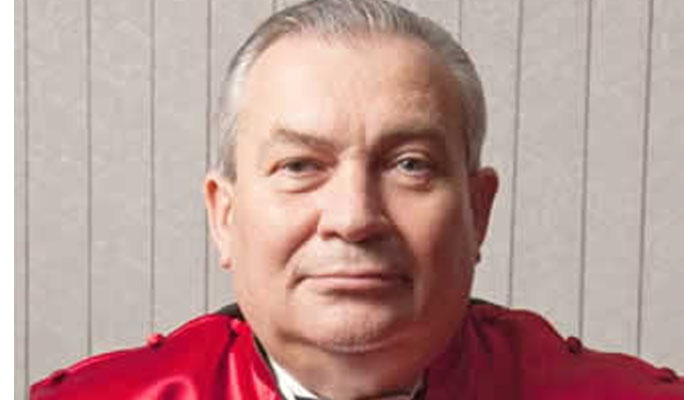The European Court of Human Rights (ECtHR) has faulted Turkey over the pretrial detention and arrest of a UN judge with diplomatic immunity following a failed coup in Turkey in 2016 due to his alleged links to the faith-based Gülen movement.
The Strasbourg-based court on Tuesday announced its ruling on Aydın Sefa Akay, who was detained in Turkey while serving as a judge for the United Nations Mechanism for International Criminal Tribunals (MICT) in September 2016 and was subsequently arrested on suspicion of membership in an alleged terrorist organization, the Gülen movement, accused by the Turkish government of masterminding the failed coup and labeled as a terrorist organization.
The movement, inspired by the views of Turkish-Islamic scholar Fethullah Gülen, denies the accusations.
The court found that the domestic courts’ interpretation on the judge’s diplomatic immunity was neither foreseeable nor in keeping with the requirements of the principle of legal certainty under Article 5 (right to liberty and security) of the European Convention on Human Rights.
There was also a violation of Article 8 (respect for private and family life) according to the court, which found that searches of Akay’s person and home were not “prescribed by law”; that his place of residence was in an analogous position to that of an office given that he was working for MICT remotely from his home country; and that his residence was subject to heightened protection due to his diplomatic immunity.
Despite the fact that the UN formally asserted diplomatic immunity, Akay was handed down a prison sentence of seven years, six months in June 2017 on charges of membership in a terrorist organization. The court, however, decided to release him subject to the imposition of a travel ban.
During his trial, MICT ordered Turkey to release him and halt legal proceedings against him.
The ECtHR ordered Turkey to pay Akay 21,100 euros in non-pecuniary damages and an additional 7,000 euros for legal costs and expenses.
Akay’s claim for 150,000 euros in pecuniary damages on the grounds that he had lost all professional opportunities as an international expert, with the result that he had been deprived of at least 30,000 euros for each year he had been in pretrial detention, and another claim for 110,000 euros in non-pecuniary damages for having been deprived of his liberty for almost a year and losing his reputation as an international judge, were rejected by the court due to his failure to submit any documents in support of his alleged pecuniary loss.
Following his release from prison pending appeal, Akay resumed work for MITC remotely; however, he was not reappointed by the secretary-general of UN. As July 3, 2018, he was no longer a member of MITC. At the time the Turkish government called for his removal from the mechanism due to his conviction.
Turkey’s Supreme Court of Appeals upheld Akay’s conviction in February 2021, and he is now serving his sentence in a prison in the Black Sea province of Rize.
The ECtHR’s ruling on Akay was unanimous.
Akay was a member of a panel of judges that was reviewing the case of a former Rwandan government minister who was convicted of involvement in his country’s 1994 genocide.
In March 2017, Turkey was referred to the United Nations Security Council over Akay’s arrest for infringing on the judicial independence of a United Nations war crimes tribunal by holding one of its judges in detention despite an order to release him.
Akay earlier described himself as a Freemason in an effort to prove he had no links to the Gülen movement and said he had downloaded the ByLock smart phone application from the Google Play Store to communicate with fellow Masons.
ByLock, once widely available online, has been considered a secret tool of communication among supporters of the Gülen movement since the 2016 coup attempt despite the lack of any evidence that ByLock messages were related to the abortive putsch.
In a landmark decision in September, the Grand Chamber of the ECtHR ruled that Turkey had violated three articles of the ECHR in the case of former teacher Yüksel Yalçınkaya, who among other things was convicted of terrorism in Turkey due to his use of ByLock.
Legal experts said the grand chamber’s decision made clear that use of ByLock cannot be considered criminal evidence against Gülen movement members.
In addition to Akay, numerous members of the Turkish judiciary were arrested after the failed coup as part of a mass crackdown on the Gülen movement.
Following the coup attempt, the Turkish government declared a state of emergency and carried out a massive purge of state institutions under the pretext of a fight against the coup plotters. More than 130,000 public servants, including more than 4,000 judges and prosecutors, as well as 29,444 members of the armed forces, were summarily removed from their jobs for alleged membership in or relationships with “terrorist organizations” by emergency decree laws subject to neither judicial nor parliamentary scrutiny.

